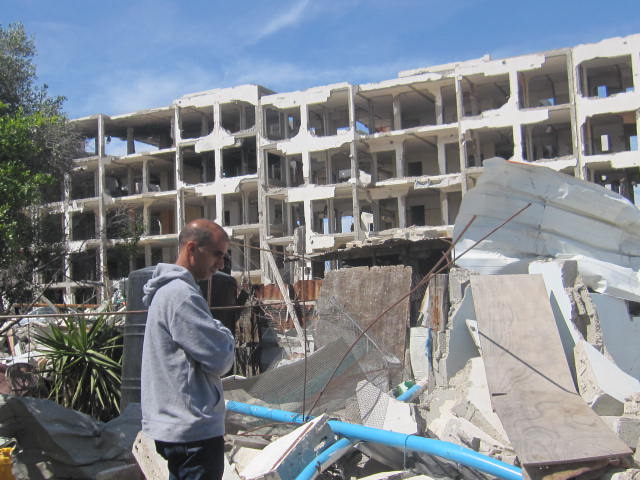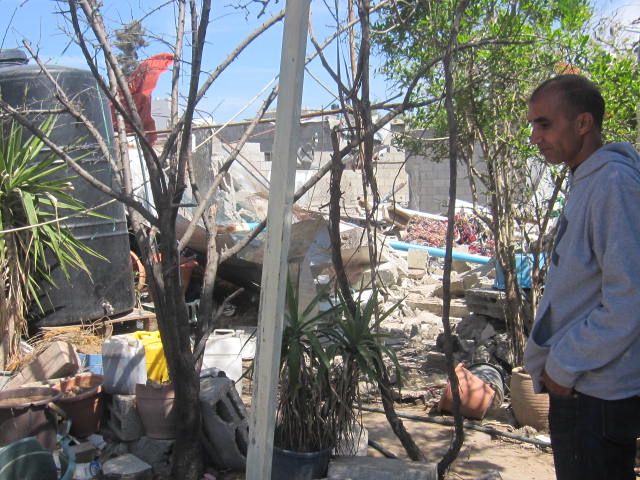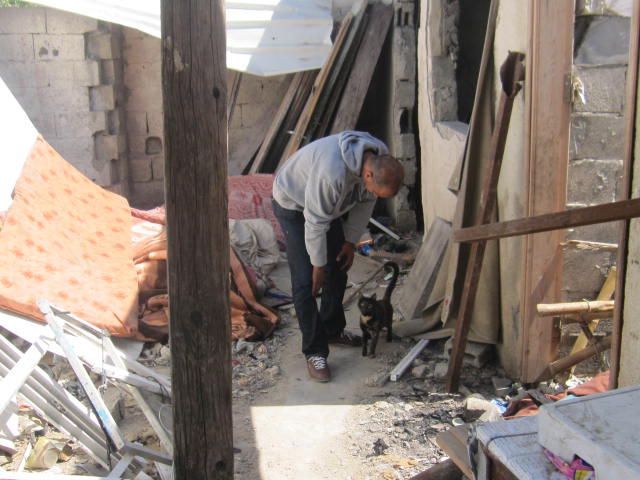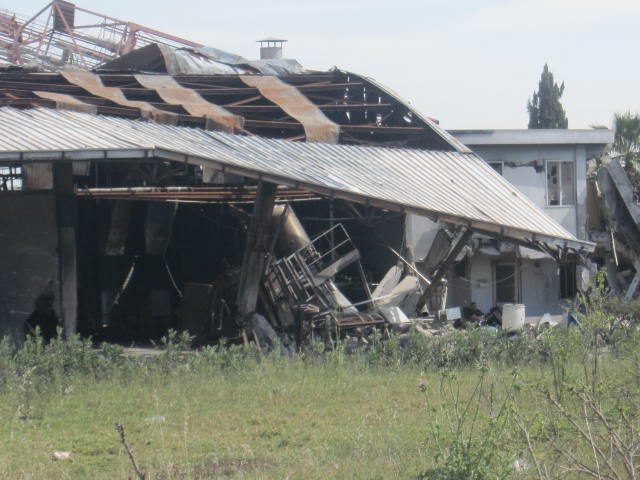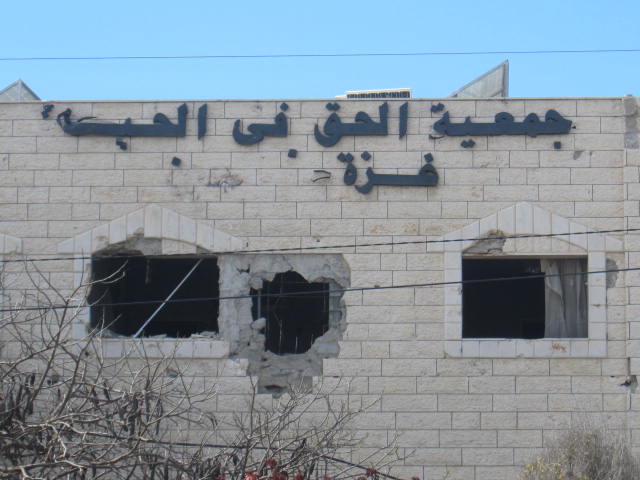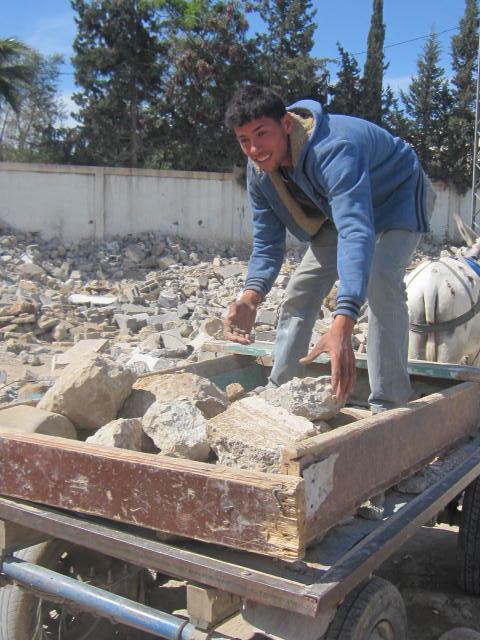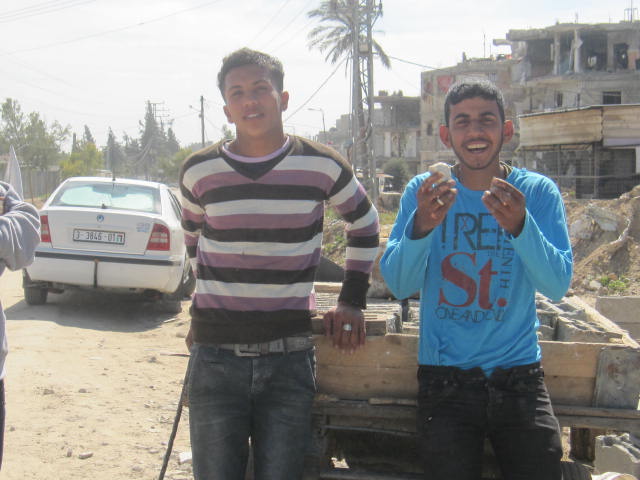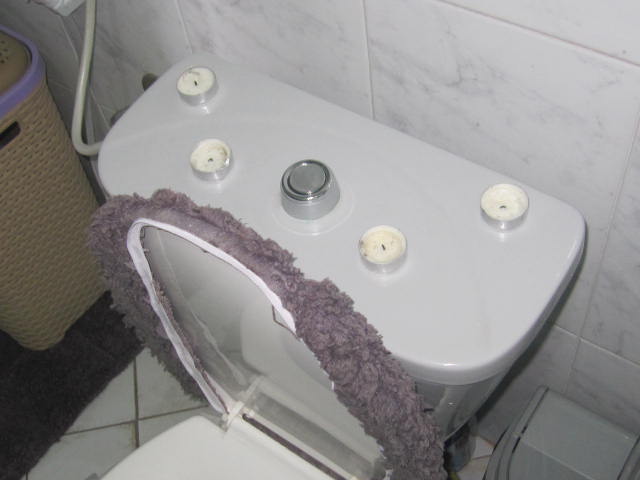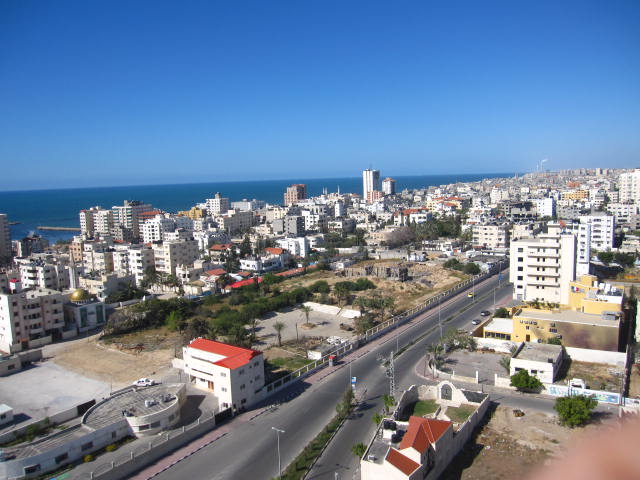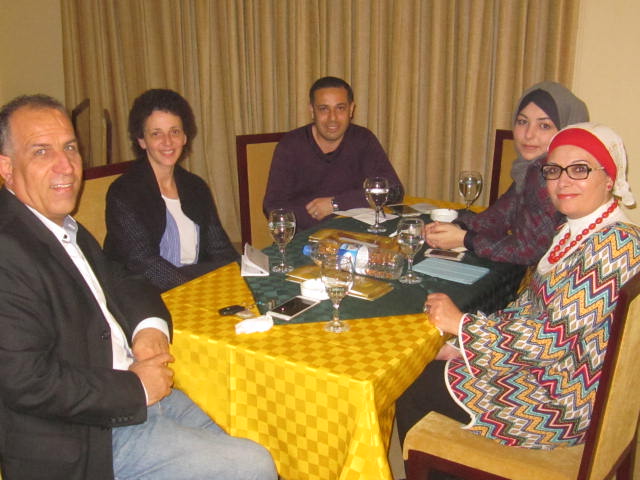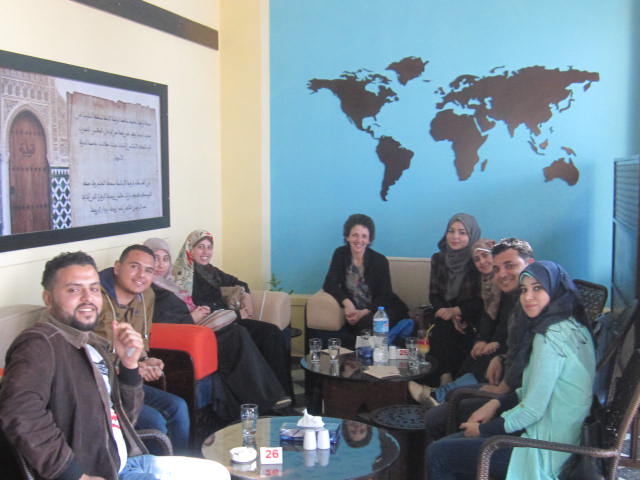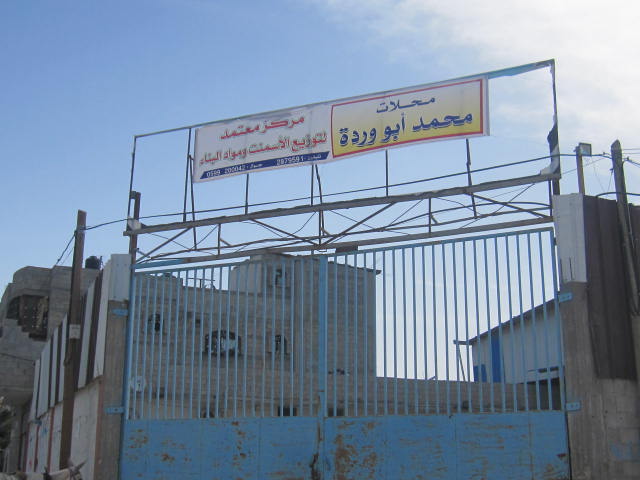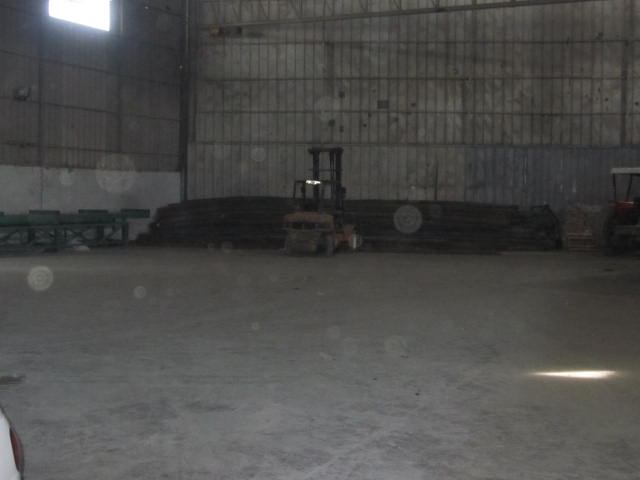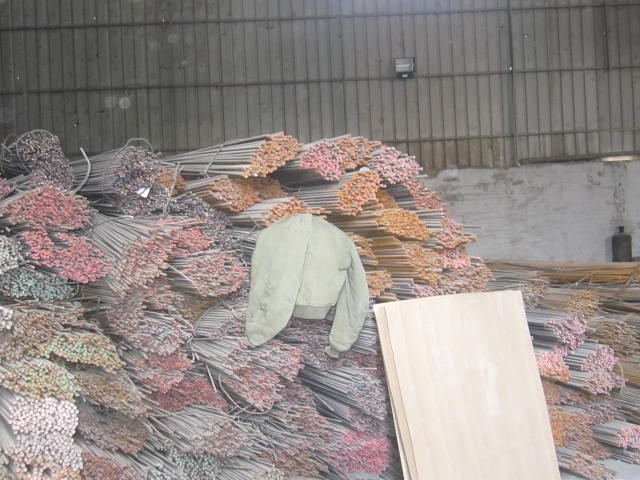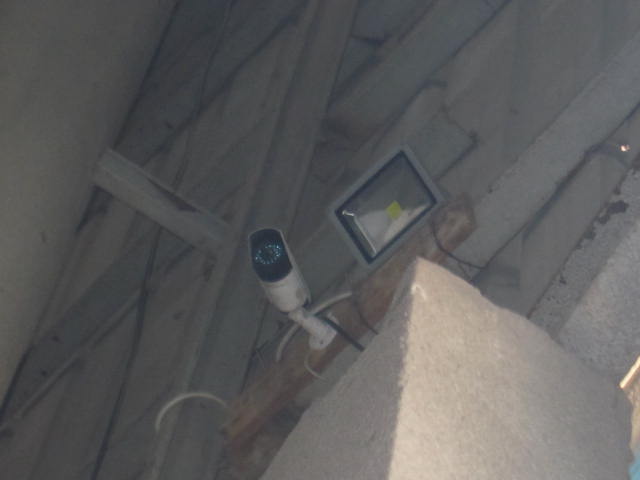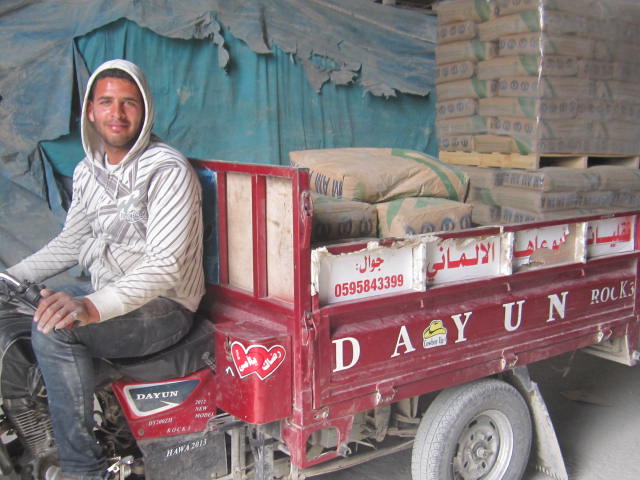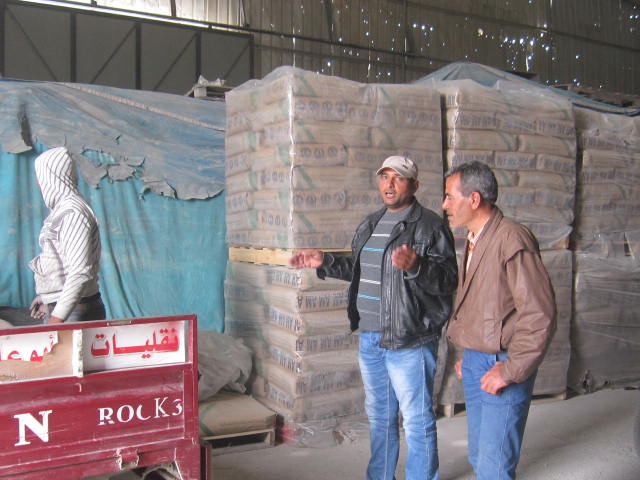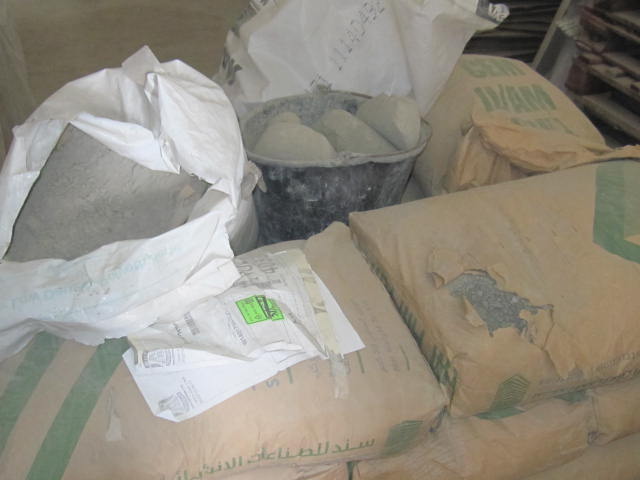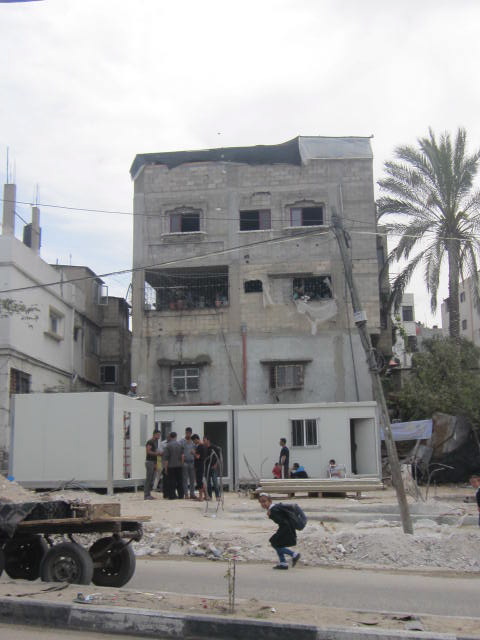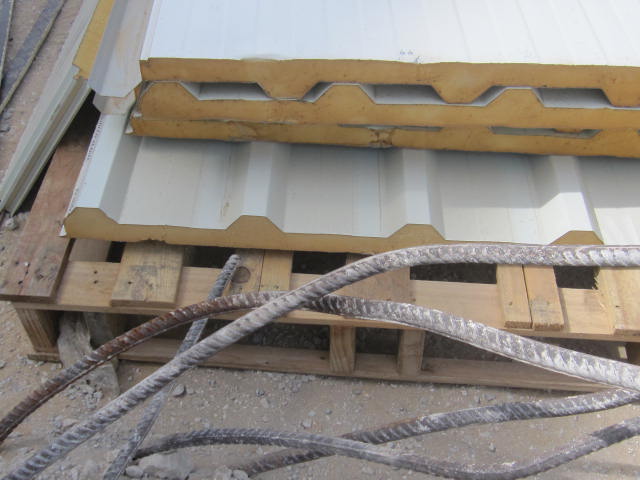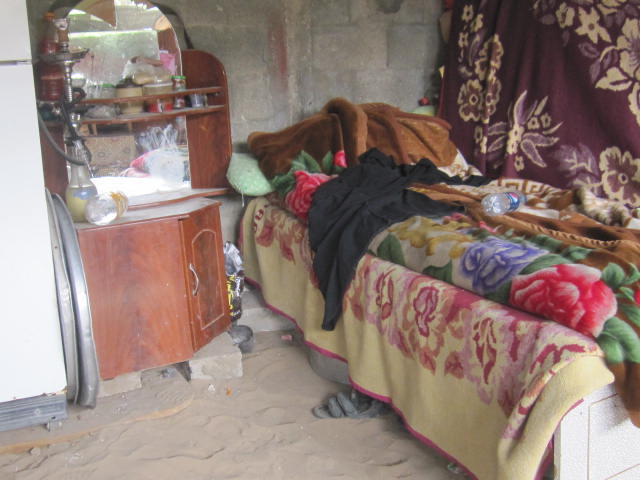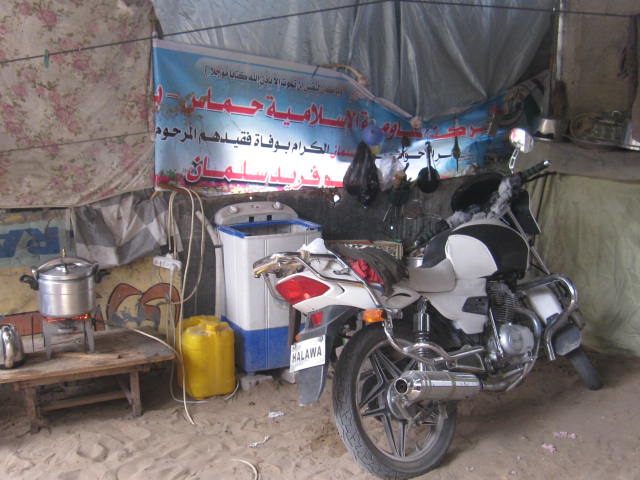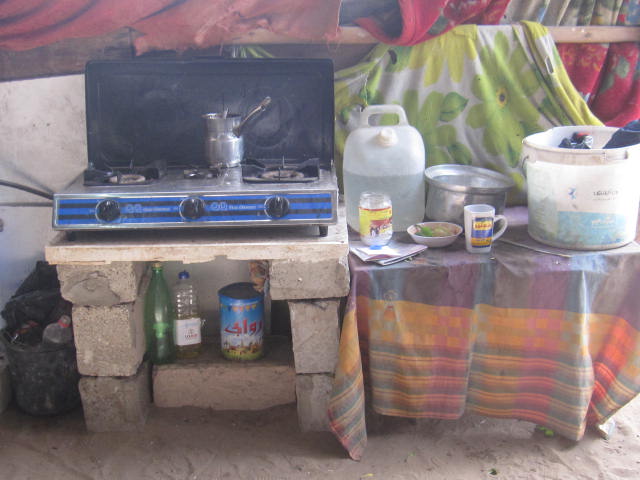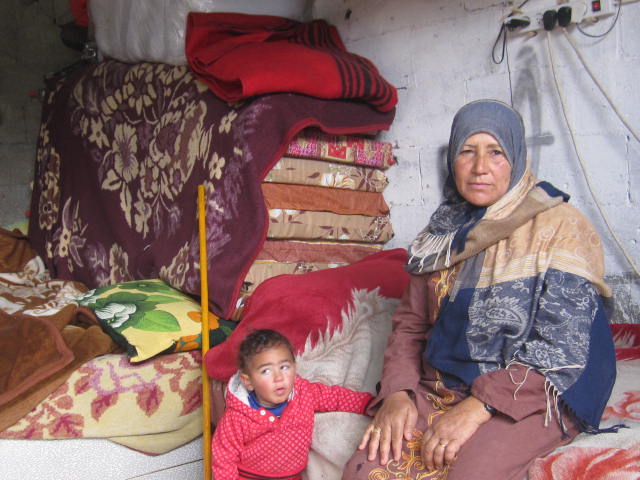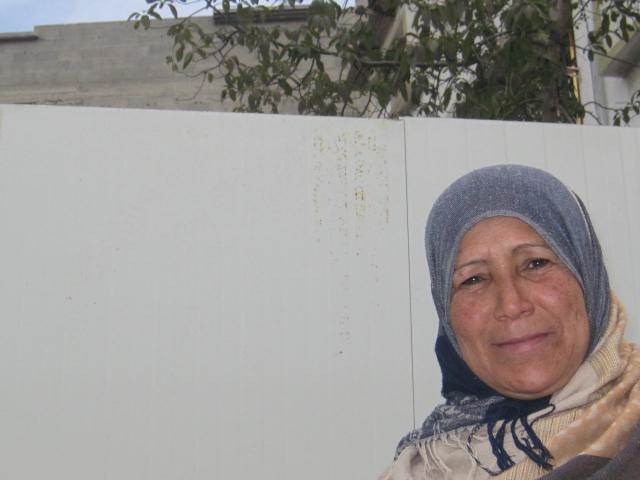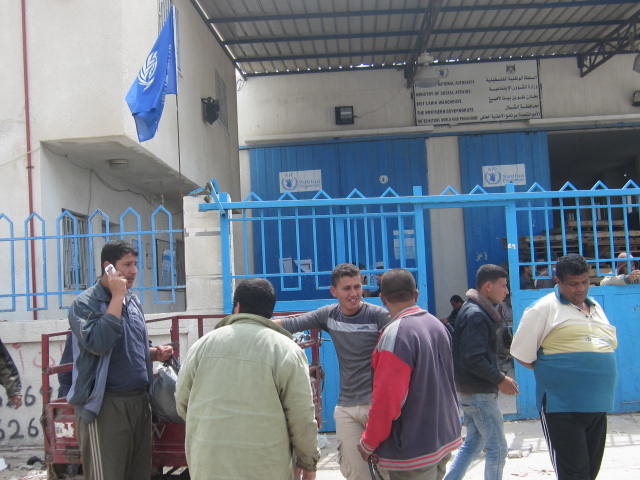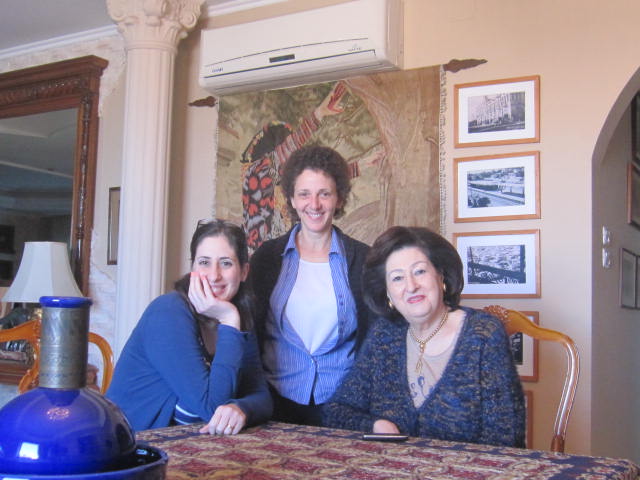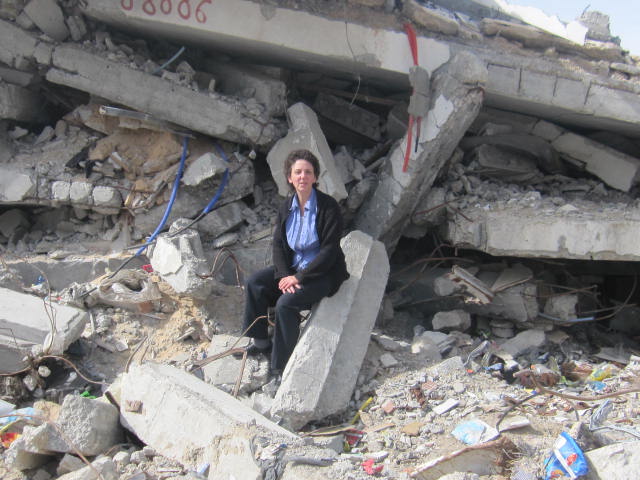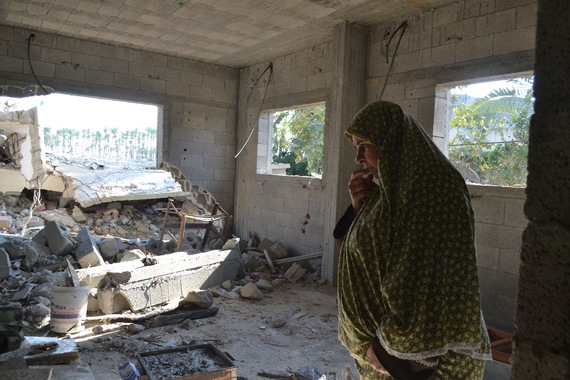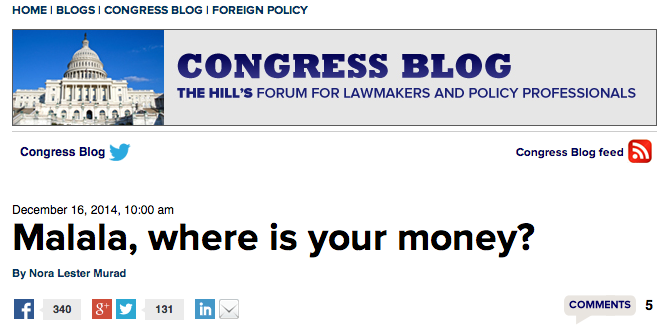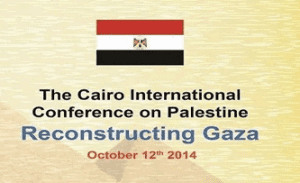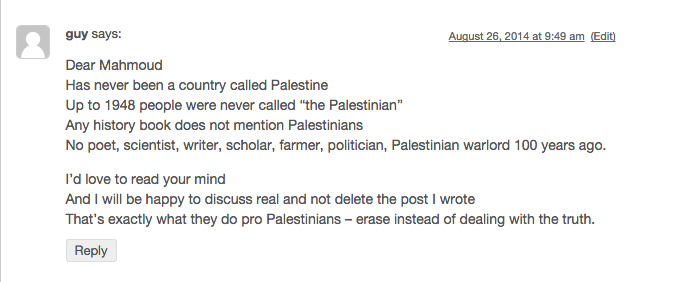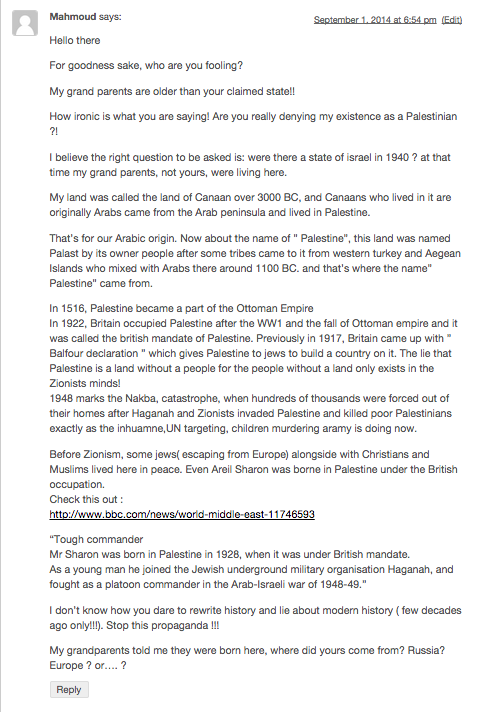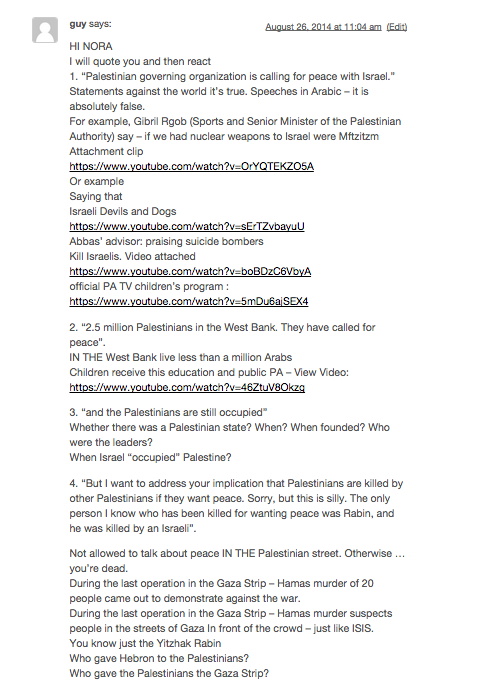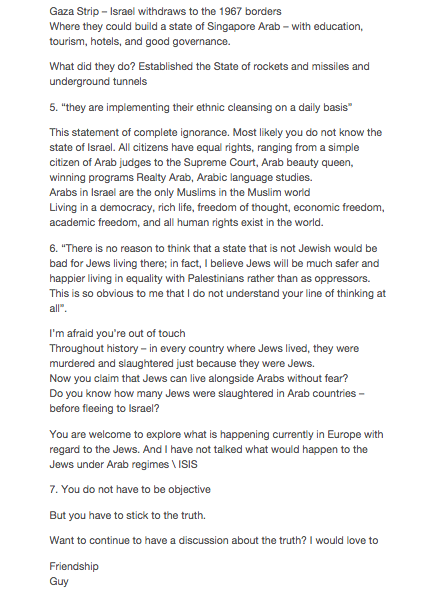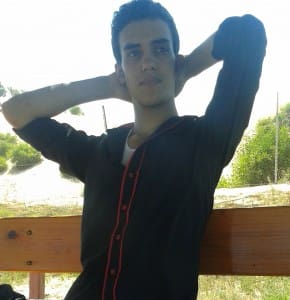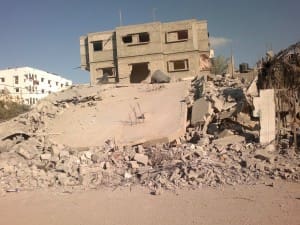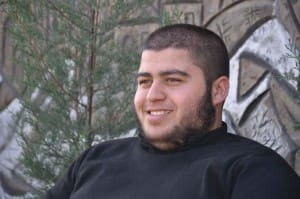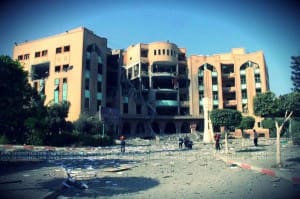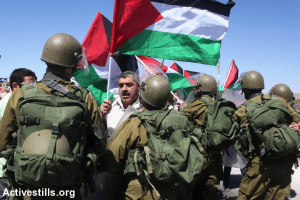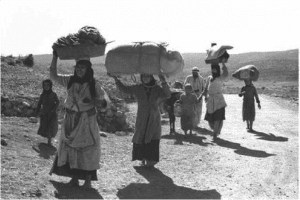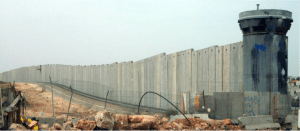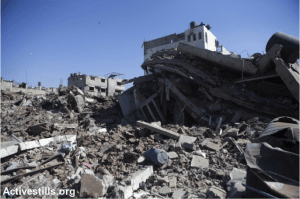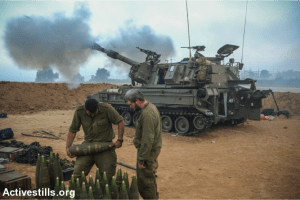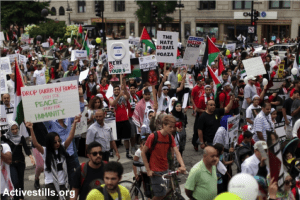The Gaza Strip from April 2-8, 2015 (but it felt like one year)
This is Kamal in front of his home in Beit Hanoun.
Kamal LOVED his garden and tried to help me imagine how beautiful it used to be. Later he showed me pictures on his phone and his colleagues at Oxfam went on and on about what a beautiful garden it had been and how much work he had put into it. This is what is left.
Kamal became very emotional when his cat jumped from behind a piece of metal into his arms. He said he felt ashamed that he was no longer able to take care of his own cat.
I had seen photos like these before — destroyed factories in Shujaeya. But seeing this factory (ice cream? juice? I forgot) with Kamal made it totally different. I could see reflected in his eyes how it used to be with people working, trucks coming and going, life in action. I could feel the tragedy in a way I hadn’t before.
This severely damaged nonprofit organization served people with disabilities. I found the name of it ironic given all the death: The Society for the Right to Life.
The only action in Shujaeya in the late afternoon were these young men picking up rubble. They took turns posing for pictures delivering rubble to a middleman who would sell it to be ground up and re-used.
I especially liked these two — cousins I think — who held up stones and said, “Five shekels! Tell the world that we work for five hours to earn 5 shekels! And every time they said, “five shekels” they broke into a hysterical laughter that made me laugh. Hard. Amazing.
And here’s a photo from a friend’s house that speaks volumes about the challenges of living in Gaza where electricity comes for 6 hours and then not again for 18 (or 8 on 16 off during good times). How do you use the bathroom at night when there is no electricity?
Still, Gaza is stunningly beautiful. From this balcony, you can see the least affected part of Gaza City, and it looks especially good because the destroyed buildings in the lower half of the photo have been cleared away (unlike Khuzaa and other places) — they were police buildings.
It was a productive trip. Here I am with the Steering Committee members from Gaza of our new initiative, Aid Watch Palestine (Jaber Qudih, left; Ibrahem Shatli, middle and Amal Zaqout, far right) and Heba, our team coordination assistant (2nd from right).
And here I am with Heba and 7 of the 9 writers who will write “glimpses of daily life” stories for the Aid Watch website (at a lovely new cafe).
And although I was really, really, really busy, I did spend a little time going around to talk to people about the reconstruction situation. Here is a cement distribution warehouse that was closed (smack in the middle of a work day).
And here is another cement distribution warehouse that was open but not operational. The manager let me take photos of the empty warehouse and explained that he expected a new shipment “any time now.” He gave me lots and lots of information about how bad the cement situation is, including how he personally had been assessed for cement back in September, but he has yet to receive any information about whether he’ll be getting any cement or when. He also talked about the irony of how people who need cement badly get approved after waiting long period but then don’t have the money to buy the cement, or they borrow money to buy cement and then sell it at a profit on the black market to buy food, since they don’t have enough money to do the repairs to their home anyway.
There was some steel (also tightly controlled because it is considered “dual use” by Israel).
And yes, the place was monitored by camera.
We finally found one cement distribution warehouse in Jabalia City that actually had cement!
Customers were very happy to get it, but there were surprisingly few.
But the manager of the facility was not so happy. He said he’s obligated to accept truckloads without inspecting them, and when he finds damaged materials like these, he’s not allowed to return them. That’s the problem with monopoly.
Then we stopped in to watch some work being done to construct a temporary shelter caravan funded by Jordan.
I was told this is a high quality caravan because the walls are insulated, unlike some of the others.
The caravan is a big improvement over the makeshift home the family is living in now on the site of their demolished home.
The mom was younger than I am but had 11 children (two died in the last war and one permanently disabled). Her grown daughter was sweeping the dirt floor when I arrived. They made me fresh lemonade.
I really liked this woman. Her name is Ghalya.
In case you were wondering, Hamas signs are visible. One time the car I was in was stopped at a checkpoint. The officer said he wanted to remind us to pray for the prophet.

United Nations and international NGO signs are also everywhere like at this World Health Organization voucher distribution center (which was not too busy, for reasons I don’t know).
I was very fortunate to be hosted by dear friends, Najla and Jason Shawa in their super comfortable home — despite the difficulty I had keeping track of which water was for drinking, which for hair washing, and which for body washing. I got to play with baby Zoozoo and meet Najla’s famous (and super nice) mom, Rawya.
As I posted on Facebook earlier today, there is only one word to describe what is happening in Gaza: betrayal.
